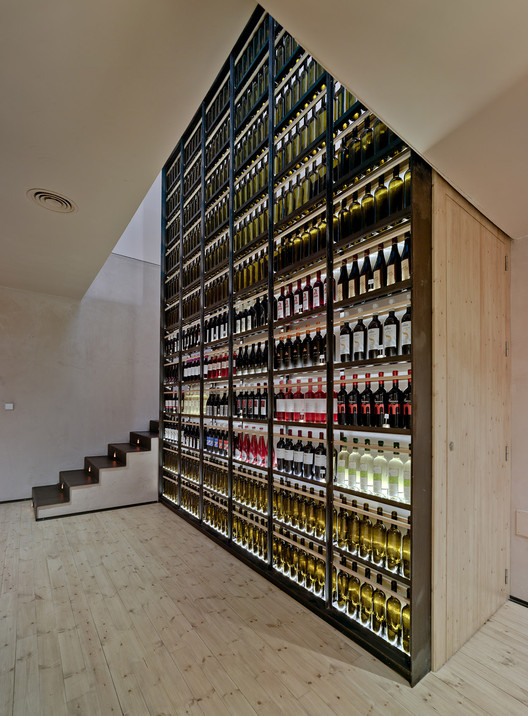
- Area: 342 m²
- Year: 2013
-
Manufacturers: Cristalería Régula, Elcom Iluminación, González Cava, S.L, IRLUZ, S.L., Virman Cerrajería, C.B.
-
Lighting Consultant: DRAIT Iluminación, Miguel Ángel Franco Cánovas
-
Construction Manager: Mohoarquitectos, Pablo Garcia Mora

Text description provided by the architects. The old cellar where we developed this project, funded by the European Union, belongs to a landmark building called “Casa de la Tercia”, constructed in the 7th century and located in the small town of Cehegín in Murcia ́s hilly interior.
























